#VULCAN BIOLOGYYYYY
Text
THE BIG VULCAN BIOLOGY POST (aka Vulcan is a Hell Planet)
DISCLAIMER: I am not a biologist, astrophysicist, neurologist, animal psychologist or literally anything that would qualify me to talk about this with 100% confidence. This is the result of dozens of headcanons and obsessive deep dive research. I don’t want this post to be three miles long, so after I address the planetary stuff I will oblige y’all with a Read More.
Adsfasdkfjhaslkdfh I’ve been working on this post for almost a month SO HERE WE GO!

First of all, Vulcan (aka T’Khasi) is a HELL PLANET, which is part of the reason they’re so badass, I say this for the following reasons:
No moon(s) (natural satellites)
Sodium (Salt) is so rare on the planet that Vulcan’s oceans are freshwater
It’s a “Super-Earth” (as in big chonkin’ planet of similar composition to earth in the “goldilocks region”)
Let’s do this.
“Vulcan has no moon Ms. Uhura.”
-Spock, The Man Trap
Tons of things change about our planet if there was no moon:
Much darker nights (no moonlight)
Much lower sea levels since there is no gravity from the moon to pull it upward.
Lower and weaker tides because the water is pulled by the sun instead of the moon, and it depends on how large the Vulcan solar system’s sun is for how big the waves are.
Stronger winds from faster planet rotation.
Depending on whether the axis of the planet would straighten or tilt further without the moon’s pull, combined with the faster rotation would lead to more severe seasons (strong tilt) or no seasons at all (no tilt)
The first factor may lead to Vulcan eyes being very catlike even if they aren’t nocturnal (I think they’re crepesucular but we’ll get into that later). Which given the likely nature of their blood and their herbivorous eating habits they probably aren’t. The sky would still be so dark that our human eyes couldn’t even see our hands in front of us, being blind when the sun goes down could be a death sentence. Alternatively, if they didn’t develop strong night vision that may be one of the reasons why they have such strong senses of hearing.
The stronger winds, faster rotation, and stronger (or nonexistent) seasons come from the lack of resistance and friction that stronger tides and the moon’s pull create on our planet. I suspect that Vulcan is larger, or at least denser than Earth, but I’ve been informed that according to the TMP novelization that it does rotate faster. I also think that Vulcan’s tilt is on the more extreme end to get the hostile extremes like storms and heat that we see on Vulcan.
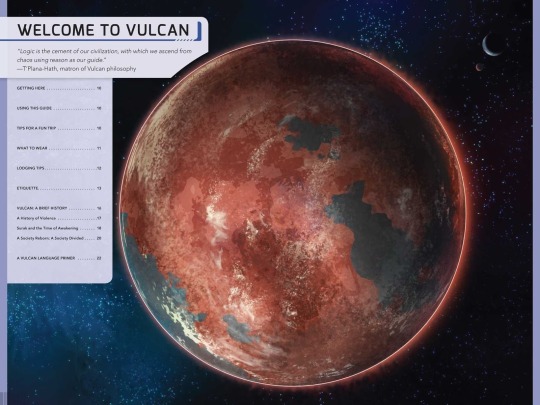
If you look at this image of Vulcan, water covers way less of the planet’s surface than Earth. I don’t think this is necessarily because Vulcan has less water, but that it isn’t spread as far because of the lack of moon, and the fact that the oceans are freshwater, I’ll get into that shortly.
“My ancestors spawned from a different ocean than yours.”
-Spock, The Man Trap
In the Star Trek: The Original Series (third) pilot The Man Trap, there is a creature that kills its victims by draining their bodies completely of salt. Spock encounters the creature but does not die, implying his (and Vulcans overall) body contains little to no salt. His justification is that his species did not evolve from a salinized ocean.
What does it mean to have oceans with no salt?
This has to mean that sodium is a very rare mineral on Vulcan, as the reason our oceans are so salinized is due to erosion of minerals by rainfall, carried from river to ocean. Salt in the ocean is also generated by submarine volcanic activity, which means either that the volcanoes on Vulcan (which we definitely know exist) somehow don’t produce salt, or the vast majority of the submarine volcanoes have been inactive for millions if not billions of years. The active volcanoes on Vulcan must be very far inland and/or Vulcan has almost no rivers, which given how hot the planet is, wouldn’t actually be too much of a stretch of the imagination.
Which means every single lifeform on T’Khasi, including Vulcans, evolved biosystems that exist without (or with very little) salt content. Any salt that exists would likely be deep beneath the planet’s surface, and within volcanoes.
No saltwater has a ton of consequences:
Plants (like underwater algae) are rarer and may not photosynthesize the same way Earth plants do, meaning less oxygen and more carbon dioxide, which means more greenhouse effect, which means higher temperatures.
The lack of salt would also mean less diverse plant life (at least as humans know it) and given the lack of visible rivers and vast swaths of desert on Vulcan, we can safely say vegetation must be hardier and infrequent.
Lower sea levels as the oceans would have lower density due to lack of salt.
Little to no water convection, which salt is crucial for on Earth. Which means warm ocean water doesn’t move to cold regions and vice versa. Creating extremes, the equator being obscenely hot, and polar waters freezing at the poles more extensively.
Lack of convection means more frequent and stronger storms like hurricanes.
If you thought the lack of a moon made Vulcan inhospitable, compound it with the low sodium factor and you’ve got a planet of even more severe extremes than before. The heat, and the decrease of plant diversity definitely explain why the vast majority of Vulcan is rocky desert, even being near the water poses more extreme dangers than it would on earth due to the increased frequency of hurricanes.
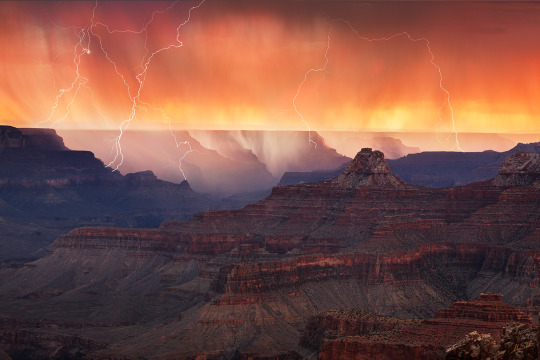
“Mr. Spock is much stronger than an ordinary human being.”
-Kirk, This Side of Paradise
I am almost 100% sure that Vulcan is either bigger or denser than Earth. Which would explain why Vulcans are so much stronger than Humans and other species that exist on similar gravity worlds.
Effects of a high-gravity planet or “Super-Earth” include:
Everything is shorter or has very strong foundations, plants, animals, structures, and people.
More “Armageddon” class asteroids would hit the planet (like the one that killed the dinosaurs and created the Gulf of Mexico)
Larger liquid mantle under the planet’s surface, higher pressure under the surface as well.
Weaker magnetic field due to lack of convection in the planet’s core (not to be confused with the mantle interacting with the planet’s crust). Which means a weaker atmosphere, lower magnetism in surface metals, and increased vulnerability to solar flares.
More volcanically and seismically active due the the increase in the mantle’s size and generated heat, more earthquakes, and more volcanic eruptions.
Would have to have a smaller sun but be closer in orbit to it than earth.
Extremely deep oceans, potentially with water under so much pressure at the bottom that it becomes solid like ice. Luckily Vulcan is not an ocean world, because the pressure would block the planet’s core from interacting with the atmosphere, which would prevent life as we know it from happening.
There is plenty of evidence for this on so many levels. We never see any plant life similar to trees on Vulcan. Nor animals significantly larger than Vulcans, the ones that are bigger are much more muscular. Vulcan’s sky is more red than blue because of the lack of oxygen molecules for the light from the sun to filter as blue. I actually headcanon that Spock is unusually tall for a Vulcan because of his human heritage (Leonard Nimoy was around 6ft tall) , and may have had heart and muscle problems in his teens and early adulthood while on Vulcan.
Perhaps Vulcans are the result of many more extinction level events than we are, contributing to their hardiness. Perhaps they are, evolutionarily, not too much older than we are, and had more incentive to develop extraterrestrial technology than we have, so that they could repel Armageddon Class meteors and defend their planet against Solar Flares? Space travel being born out of self-preservation rather than curiosity. Which would absolutely account for their attitudes in the beginning of Star Trek: Enterprise.
It could be that Vulcans still maintain a semi-nomadic lifestyle even today because their planet is so incredibly volatile. Unsentimental and utilitarian in anything less than the most sacred of architecture long before they adopted the teachings of Surak. Their own survival more valuable than any structure that would inevitably be damaged or destroyed by their planet’s harsh environment.
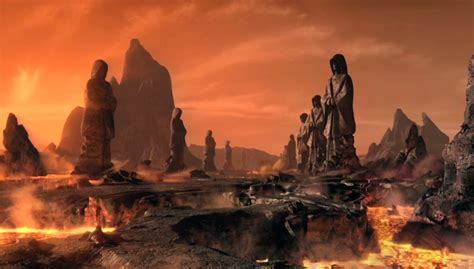
In summary, Vulcan is a Nightmare Planet because:
So, so many much natural disasters, like, so many, earthquakes, volcanic eruptions, tsunamis, hurricanes, twisters, just, so many more than Earth.
Water is relegated to specific locations in the world rather than spread across it due to lack of flow and lower sea levels.
Extreme temperature changes, intense heat, intense cold, hard to breathe, stronger gravity.
Due to the planet’s hostility, there is a smaller diversity of life than we have here on earth, which means fewer and hardier food sources that, like Vulcans, are very difficult to kill.
So… How do they handle it? What features have they developed to adapt and thrive in such an inhospitable place?
First thing is first, lets talk about
BLOOD
“My hemoglobin is based on copper, not iron.”
-Spock, Obsession
Funny thing is Spock, it’s not hemoglobin at all! It’s hemocyanin! In fact, there are earth animals that have it, among them Horseshoe Crabs, crustaceans, mollusks and spiders!
Hemocyanin is blue when it hasn’t been exposed to oxygen, and blue-green when it has, according to some sources on Vulcans their blood is orangey red when unexposed to air and that’s why they have pink lips and so on, but we can brush that off as chemical variation within their hemocyanin. Better yet, maybe it’s trendy for Vulcans to wear pink lipstick nowadays, ‘cause Surak knows how horny Humans and Vulcans are for each other XD! Anyway!
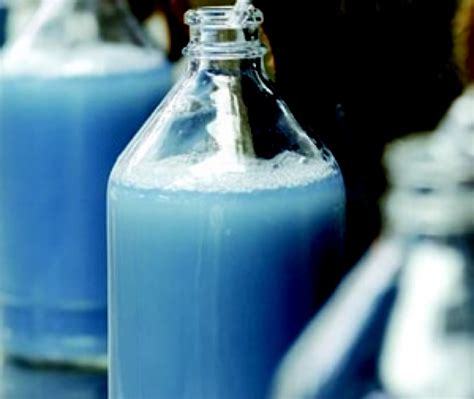
Hemocyanin does quite a few things that our blood can’t, it’s uniquely built for high pressure, low oxygen environments, as well as endure temperature extremes like cold (not unlike nights on their planet). Not only that, but it coagulates and clots WAY faster than our blood. Which means wounds seal themselves off from harmful bacteria and stop bleeding much faster than hemoglobin. Pair that with the Vulcan ability to enter a healing torpor, no wonder Spock keeps surviving environments and wounds that would definitely have killed a human.
Now, the animals I listed don’t have veins, which for us carry oxygen around via hemoglobin, so it’s possible that the same difference that causes Vulcan blood to be a coppery orange-red beneath the skin, is the same reason they have veins. Allowing them to look more like us and lack the exoskeletons and deep ocean delving that their earth blood cousins have.
“The ship’s temperature is increasingly uncomfortable for me. I’ve adjusted the environment in my quarters to 125 degrees.”
-(Elderly) Spock, The Deadly Years
Oh goodie, the Vulcan blood temperature discourse has arrived, the age old question, are Vulcans warm-blooded or cold-blooded? The answer to this question is
YES
I am firmly in the small (but hopefully growing) camp Vulcans Are Heterothermic. Among the earth animals we know to be heterothermic are bumblebees, several species of bats, the opah fish, and the arctic ground squirrel. Of all these animals, despite the opposite temperature intensity of Vulcan’s environment, I’m basing how Vulcans function on the last one, the arctic squirrel.
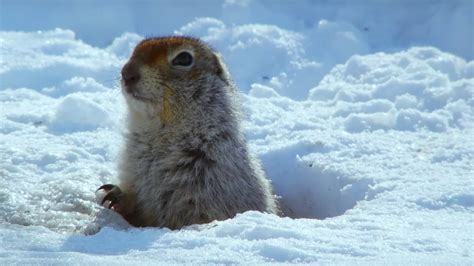
Which means they can deliberately control their body temperature in accordance to the needs of their survival. I imagine, just as arctic ground squirrels can drop their body below zero as needed (entering what is called a “daily torpor”) Vulcans can do the same. In turn, they could possibly skyrocket their bodies to temperatures that would be a lethal fever for humans. Which makes both McCoy’s “nonexistent Vulcan metabolism” comments in various episodes, as well as describing his blood as “ice water” make sense. As well as Spock being able to handle the heightened body temperature caused by Henoch in “Return to Tomorrow”. It also explains why Spock was in far better shape than Bones in the freezing temperatures of the planet from “All Our Yesterdays”.
However, like arctic squirrel newborns, they start out as ectothermic (cold-blooded) which lends itself to the Vulcan infants needing even more skin to skin to survive than humans theory by @acesexualspock. Being born cold blooded would prevent them from immediately dying the second they were exposed to the dangerous extremes of Vulcan’s heat. I also think they slowly lose the ability to control their metabolic rate as they grow older, slowing down dramatically as they age, which is why Spock gets increasingly colder as he ages rapidly in “The Deadly Years”.
“The brightness of the Vulcan sun has caused the development of an inner eyelid.”
-Spock, Operation: Annihilate
I wanna thank @tribbleland for inspiring this part in particular.
I want to offer a special congratulations to furries people who let their love for anthro-cats bleed into their love for Vulcans, turns out Vulcans are very catlike! Like our feline Terran friends, Vulcans have what is called a Nicitating Membrane. It’s functions that would serve Vulcans well in their desert home include spreading moisture across the eye, protect the eye from small water and small debris (like sand for example), as well as protecting the eye from ultraviolet radiation, which is more or less what Spock said in that episode. Other animals that have Nicitating Membranes aside from felines is actually the majority of the animal kingdom, and primates (like us) are the exception and not the rule. I also subscribe to the idea that Vulcans have other desert dweller features like thick hair and eyelashes, sealable nostrils, big feet, a crepuscular sleep cycle (avoiding extreme midnight and midday temperatures), and a tough as nails digestive system!
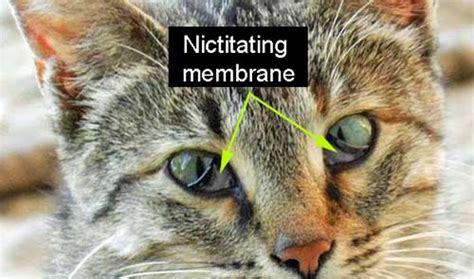
As an added bonus fact since this section is pretty short: It makes purrfect sense for Vulcans to purr! In cats purring is an emotional regulator when they are angry or scared (Vulcans are ALL about regulating their emotions) as well as purring when they are happy. It is also a mechanism for healing themselves, their kittens, and their owners, the frequency at which cats purr (25-140 Hz) cover the same frequencies that are therapeutic for bone growth and fracture healing, pain relief, swelling reduction, wound healing, muscle growth and repair, tendon repair, and mobility of joints. I’m over here getting emotional about the mental image of like, Spock or Tuvok or smth sitting next to a wounded crewmember and just like, purring with a completely straight face and that is soft and just a little funny and I am emotionally compromised.
“And are it’s natives predatory?” “Not generally, but there have been exceptions.”
-Spock to Trelaine, The Squire of Gothos
Surprise! This isn’t just going to be about Vulcan dietary needs, it’s gonna be about animal behaviors and self-domestication as well! I was trying to think of herbivores that are capable of eating meat, and then this idea hit me like a bomb going of in my head-
Vulcans are like Hippos!
I don’t mean I think they used to be hippo-like (visually anyway) somewhere along the evolutionary line. I mean that they were probably big, extremely aggressive, pack roaming herbivores that are able to eat carrion when food is scarce. Have you ever seen a video of a group of Hippos smashing an alligator to smithereens? They kill more humans than any solitary predator on the African continent! What about a murder of crows killing a cat that injured one of them, or a group of bison saving a calf from a lion?! Herbivores can be insanely aggressive while still being social, plant-eating animals.
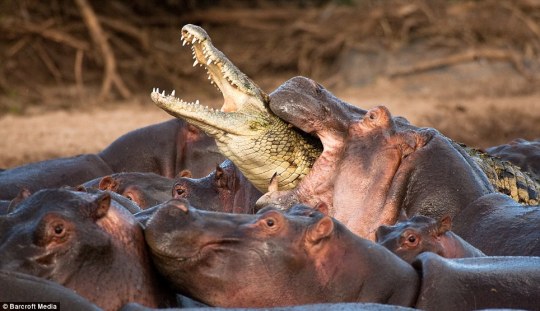
With that in mind, let’s talk about self-domestication! This is something that we humans (and to an extent, cats too) did way back in our biology according to some studies, we bred out aggression and bred in cooperativeness and curiosity. Cats, while partially domesticated by us, started looking for mates that were more sociable so that their offspring could exist closer to humans (and their food) as well as to tolerate other cats. While I do think Vulcans self-domesticated to a degree, I do not think they were able to do so nearly to the same extent as humans or our deliberately domesticated companions. Vulcan is a harsh, violent, and unforgiving planet, even more so than Earth, if Vulcans were naturally as friendly and curious as we Humans are now, they would not have survived as a species.
I believe this is why their emotions are so primal and strong, and things like Pon Farr and their unusually high wariness of the new and unexpected still exist so strongly. How do they live together in such high numbers and develop a functional society? They developed other means of coping as a work-around the impracticality of decreasing aggression!
“Call it a deep understanding of the way things happen to Vulcans.”
-Spock, The Immunity Syndrome
So, how do you have a species as aggressive, unforgiving, and frighteningly strong as Vulcans keep from completely destroying itself (aside from Surak’s teachings)? You take the empathy that humans already have, turn it up to 11, and tack on every evolutionary possibility to increase it. We already know how the Earth comparisons for Vulcan empathy: the extreme vitality of touch for the survival and emotional stability, cats purring to heal each other and themselves (and regulate emotions), nonverbal communication, the ancestral instincts of an infant animal being able to walk days after its born. What if we had all of these traits in remarkable spades, Vulcans certainly seem to! (Be prepared, the science starts getting a little squidgy because there are no real world comparisons and neurology research is very jargon heavy)
Electricity is a fundamental part of the biology of nearly all living things, it allows synapses to fire, regulates our internal organs, and gives us our senses of touch and movement. Skin to skin is so incredibly vital to the survival of infants, and the emotional stability for adults, that needing any more touch could be impractical and counterintuitive. So what if we got more from less? What if our sense of touch, and the acuteness of being able to read the emotions of others from body language and touch manifested as a form of what looks like from an outsider’s perspective, telepathy!
Now what if the radius of the sensation of touch could be extended much farther, say being able to sense someone to the same intensity I described in the last paragraph, like, through a wall or from across a room? What if you could connect to other lifeforms with the same ability like a chain circuit that could connect a whole species together in one giant circuitboard? I just described what Vulcans call the kwar’ma’khon, the telepathic energy that connects all Vulcans to each other!
Imagine having this same intense telepathic connection to someone for an extended period of time, like a t’hy’la or Bond Mate. What if you had a relatively easy to master non-lethal attack against other members of your species, that comes to you easily due to your intrinsic understanding of nerves and touch, like the Vulcan Nerve Pinch. In turn, what if, through the intensity of this connection you could transfer everything you knew and saw and felt to another person in the event of your death. That way, if you survived the harshness of your world without dying violently or unexpectedly, you could deliberately pass on that knowledge and those instincts to your next of kin, like the Katra. (thanks @distractedducky @spacedancer1701 & @find-me-in-outer-space)

Now, that’s A LOT of empathy on top of A LOT of aggression, if you don’t have a work around for any of these, as a species you’d be rendered a complete emotional wreck pretty much 24/7 (or whatever the time cycles for Vulcan are). Which is where @ineffablebuddies theory that Vulcans can control, or at least mitigate their incredibly strong emotional reactions the same way they control their nervous system and metabolic rate. Which is how they are able to be touch telepathic, able to enter a torpor at will, and be heterothermic in the first place. The only reason Vulcans come off as unemotional to us is because we simply do not see and feel the way that they can. Unlike us, because of their ability to control their own internal chemistry, if they follow Surak’s teachings and/or Syrranite ideology, they can take that emotional regulation to the extreme.
(BIG EXHALE) Congratulations on getting through this insanely long post! I hope you enjoyed it, if you want sources on any of my non-tumblr post research just let me know in the notes. LLAP! 💚🖖🏻💚

#Vulcan biology#*emphatically* vulcan biology#VULCAN BIOLOGYYYYY#AHHHHHHHH#vulcan has no moon#big gravity#big disaster#vulcantology#a post 3 weeks in the making#yes I know it’s 1am EST what about it?!#vulcans#vulcan Vulcans Vulcans#return to tomorrow#the man trap#the deadly years#obsession#operation: annihilate!#hemocyanin#heterothermic#aggressive herbivores#touch telepathy#Pon Farr#self-domestication#nicitating membrane#vulcan infants#neuroelectricity#xenobiology#xenobiologist#the immunity syndrome#the squire of gothos
2K notes
·
View notes